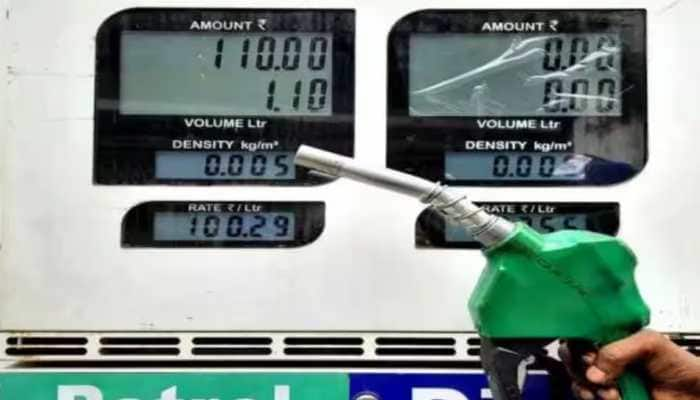Govt's stand on Aadhaar for PAN in conflict with UIDAI: SC told
The government's decision to make Aadhaar mandatory for PAN number on Wednesday came under sharp attack in the Supreme Court, with the antagonists asserting that the move would "dilute civil liberties and dominate the citizens."
Trending Photos
)
New Delhi: The government's decision to make Aadhaar mandatory for PAN number on Wednesday came under sharp attack in the Supreme Court, with the antagonists asserting that the move would "dilute civil liberties and dominate the citizens."
Contending that an Aadhaar-like system has not been implemented in any country which calls itself democratic, the opponents also said a person can be tracked and remain under electronic survelliance throughout his life.
They said the step was in "complete collision" with the norms laid down by its statutory arm UIDAI which clearly states that Aadhaar is "voluntary".
Arguing that the enrollers of Aadhaar who are collecting data and biometrics from citizens were private parties and there was serious threat of misuse or leakage of data, senior advocate Shyam Divan said "there are cases where such information have been commercially sold. The law says life and body is paramount and if the finger prints of an individual are stolen, it might end his identity."
"If we fail here, there is tremendous possibility that state will dilute civil liberties and dominate its citizens. The concept of civil liberties will go then," he told a bench comprising Justices A K Sikri and Ashok Bhushan.
He said that the "creature" of the Aadhaar Act, that is the Unique Identification Authority of India (UIDAI) which is responsible for its enrolment and authentication including operation and management, has repeatedly said that every citizen of India was entitled to obtain it "voluntarily".
The counsel, who was representing two of the three petitioners who have challenged the government's decision, told the court that Attorney General Mukul Rohatgi had contended that Aadhaar was "mandatory".
"Even today, UIDAI website says that every citizen is entitled to voluntarily obtaining Aadhaar. The authority, which is the creature of the Aadhaar Act, is saying it is voluntary," senior advocate Shyam Divan told the bench.
"Instrumentalities of state does not defraud the public. UIDAI has given the correct interpretation, that is, Aadhaar is voluntary. The language of the statute and understanding of UIDAI is clear. Aadhaar is entirely voluntary," he said, adding that the application form for Aadhaar enrollment also says it is voluntary.
Divan buttressed his arguments by referring to earlier orders of apex court and said, "the Supreme Court has said it is voluntary. It is the duty of court to protect the citizens of this country".
He argued that there was a "complete collision" between the Aadhaar Act and section 139AA of the Income Tax Act, which provides for mandatory quoting of Aadhaar or enrolment ID of Aadhaar application form for filing of income tax returns and making application for allotment of PAN number with effect from July 1 this year.
When the government opposed the contentions advanced by petitioners, the bench put a poser to the parties and asked whether a person can say that he would pay tax in a manner in which he or she wants.
"In a tax regime, you cannot say that I will not pay tax ... The question is a person is ready to pay tax. Whether he can say that I will pay tax in the manner I want," the bench asked.
During the hearing, the Centre maintained its stand saying section 139AA was enacted by Parliament to ensure that fake PAN cards are weeded out of the system and Aadhaar was the "most effective" way to do it.
To this, the bench asked, "they (petitioners) are saying that why to follow this law which according to them is invalid".
The government said: "Parliament has decided in its wisdom that you may have to do something which they (petitioner) do not want to do. There could be many things which could be objected to but the law cannot be said to be discriminatory".
"State has a right to ask for information and state does it also. We cannot impart on the conception of privacy prevailing in different parts of the world," it said.
The bench, however, said it would not go into the aspect of privacy as the issue would be dealt with by a constitution bench.
The apex court was hearing three petitions challenging the constitutional validity of Section 139AA of the Income Tax Act which was introduced through the latest budget and the Finance Act 2017.
During the arguments, which would continue tomorrow, the Centre said the Aadhaar Act was enacted in terms of the apex court's orders and Parliament has exercised its legislative powers for it.
The government also said that leakage of information was never from the UIDAI database where the biometric information is stored.
Divan countered the Centre's arguments and said the Aadhaar-like system has not been implemented in "any other country which calls itself democratic."
"The government cannot say that Aadhaar is mandatory. They cannot argue contrary to what is there in the statute enacted by Parliament," he said, adding, "there are no coercive proceedings in the Aadhaar Act and there are no penalties for not obtaining Aadhaar".
"Absence of any coercive provision in the Act regarding securing Aadhaar is an important factor and it shows that it is not mandatory but voluntary," Divan said.
He also argued that the way the government was trying to make it mandatory, a person can be tracked and he would be under electronic survelliance throughout his life.
"It will destroy social and political choices. This is the worst thing," he said and added that a person cannot be compelled to part away with his biometrics to obtain Aadhaar.
Divan also argued that the enrollers who are collecting data and biometrics for Aadhaar were private parties and there was serious issue of a misuse or leakage of data.
"There are cases where such information have been commercially sold. The law says life and body is paramount and if the finger prints of an individual are stolen, it might end his identity," he said, adding that even before the Aadhaar Act came into force, around 100 crore Aadhaar cards were issued in the country.
"If we fail here, there is tremendous possibility that state will dilute civil liberties and dominate its citizens. The concept of civil liberties will go then," he said.
The Centre had yesterday said that Aadhaar was made mandatory for PAN card to weed out fake PAN cards which were used for terror financing and circulation of black money while terming the concerns over privacy as "bogus".
The idea behind bringing Aadhaar was to have a "secure and robust system" to ensure that the identity of a person cannot be faked, it had said.
Stay informed on all the latest news, real-time breaking news updates, and follow all the important headlines in india news and world News on Zee News.
Live Tv







)
)
)
)
)
)
)
)
)
)
